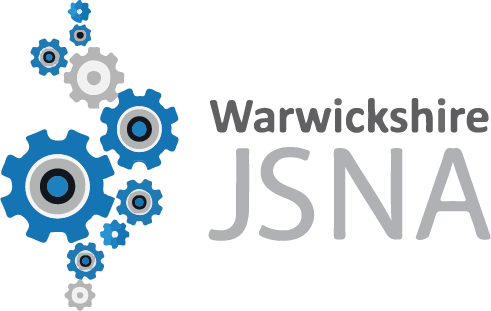Warwickshire Joint Strategic Needs Assessment - Residents Survey
Overview
To establish a picture of the health and wellbeing of the Warwickshire population, Warwickshire County Council (WCC) and partners carry out Joint Strategic Needs Assessments (JSNA) every few years. The assessment is used to inform the planning and delivery of services and support, it can also be a useful source of information for charities and communities themselves.
Previous assessments have been carried out for Warwickshire as a whole, this year we have divided the county into populations of around 30-50,000 people. This will inform the setting of local priorities and provide a more in-depth understanding of health and wellbeing within smaller areas.
The JSNA brings together evidence from a range of sources on factors that affect health and wellbeing. This is used by teams within the council and other organisations to inform the planning and delivery of services, helping to ensure services and support are well-placed to help the people who need them most.
Why your views matter
To ensure the assessments reflect local priorities, we would like to gather the views of local residents. This survey is one of the ways we are gathering information for the JSNA.
The JSNA will also incorporate data held by local organisations and the views of local communities, gathered through engagement with stakeholders and local residents.
For more information contact: insight@warwickshire.gov.uk
Areas
- District: North Warwickshire Borough
- District: Nuneaton and Bedworth Borough
- District: Rugby Borough
- District: Stratford-on-Avon District
- District: Warwick District
Audiences
- Anyone from any background
Interests
- Social care
- Health and wellbeing
- Disabilities
- Mental health
- Schools and learning
- Environment and sustainability
- Roads and travel
- Policies, plans and strategies
- Community safety and crime
- Business
- Voluntary and third sector
- Communities
- Children and families
- Adults and older people
- Equality, welfare and rights
- Housing
- Early help
- Economy
- Young people
- Engagement and surveys


Share
Share on Twitter Share on Facebook